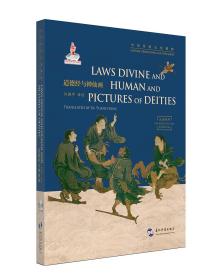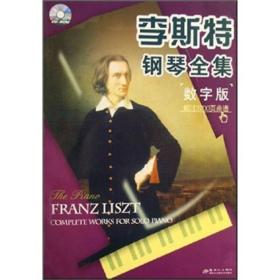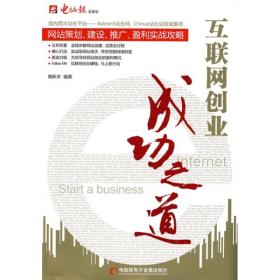
“西藏问题”国际纷争的背景、流变及视域(法)
正版新书 每天下午发货 有问题联系客服 谢谢
¥ 56.7 3.0折 ¥ 189 全新
库存2件
北京朝阳
认证卖家担保交易快速发货售后保障
作者阿尔伯特·艾廷格 著;卡尔马·科琳 译
出版社五洲传播出版社
出版时间2018-08
版次1
装帧平装
上书时间2025-01-08
- 最新上架
商品详情
- 品相描述:全新
- 商品描述
- 正版书,,从未翻阅, 年限久的自然的旧,每天下午发货
图书标准信息
- 作者 阿尔伯特·艾廷格 著;卡尔马·科琳 译
- 出版社 五洲传播出版社
- 出版时间 2018-08
- 版次 1
- ISBN 9787508533995
- 定价 189.00元
- 装帧 平装
- 开本 16开
- 纸张 纯质纸
- 页数 453页
- 字数 451千字
- 正文语种 法语
- 【内容简介】
-
本书为国外藏学研究成果,2015年先由法兰克福Zambon出版社以德文出版,作者阿尔伯特•艾廷格(Albert Ettinger)系卢森堡著名藏学家,该书系统梳理了“问题”由来,对其何以漫及国际的背景和历程做了独到叙述和分析,结合中国统一多民族国家的历史文化传统特点,展望所谓“问题”渐次式微的前景,公允得出西藏自古以来是中国领土一部分的客观结论。本书视角独特,言之有据,颇具学术水准,令人耳目一新。
This book lights up the historical, political and international law aspects of the Tibet conflict. Based on western scientific literature and on contemporary witnesses, it rebuts the largely dominant narrative that in 1950, the Chinese communists attacked and occupied an independent, peaceful country and, since then, tried to suppress Tibetan culture and even the Tibetan people itself.
On the contrary, it shows that “Tibetan independence” was a colonial project of the British Empire – a project later resumed, to some extent, by the USA within the context of the Cold War.
The author deals in detail with the first half of the 20th century, starting with the 13th Dalai Lama who rose later, with British support, to become a despot over an “independent Tibet“in which British agents pulled the strings. High officials and lamas loyal to China were killed then or had to flee, hole monasteries were razed to the ground. The Dalai Lama’s will for modernisation, though maintained by numerous western authors, confined itself to the creation of a "modern" army equipped and trained by the Britons. The death of the 13th Dalai Lama in 1933 led to embittered struggles for power, which the author tells in detail. The regent, who eventually came out on top, though being a lama, was corrupt and debauched. In the course of a renewed struggle for power with his equally corrupt successor, even a short civil war took place in Lhasa. - 【作者简介】
-
阿尔贝特•艾廷格于1952年出生在卢森堡一个工业小镇迪弗当日,是一名矿工的儿子。在德国特里尔大学学习历史、德语和罗曼语,获哲学博士,以优异的成绩从该校毕业。他辗转卢森堡和德国特里尔市之间在中学、大学教学三十多年。
近年来,作者撰写了涉藏题材的两部专著和许多文章。
Albert Ettinger
was born in 1952 in Differdange, a small industrial town of the Luxembourg steel area, as the first son of a miner. Initially, he studied History, then pursued German and Romance Languages Studies in Trier (Germany), which he completed by a Ph.D. with the rating summa cum laude.
For more than thirty years, he worked as a high school and college teacher in Luxembourg and Trier.
He is married and father of two children.
In recent years, Albert Ettinger wrote two books and many articles about Tibet and the Tibet conflict. - 【目录】
-
《‘西藏问题‘靠前纷争的背景.流变及视域》无
内容摘要
本书为国外藏学很新研究成果,2015年很初由法兰克福Zambon出版社以德文出版,作者阿尔伯特?艾廷格(Albert Ettinger)系卢森堡有名藏学家,该书系统梳理了所谓“西藏问题”由来,对其何以漫及靠前的背景和历程做了独到叙述和分析,结合中国统一多民族国家的历史文化传统特点,展望所谓“西藏问题”渐次式微的前景,公允得出西藏自古以来是中国领土一部分的客观结论。本书视角独特,言之有据,颇具学术水准,令人耳目一新。
主编推荐
本书为卢森堡有名藏学家阿尔伯特?艾廷格(Albert Ettinger)很新研究成果,全书系统梳理了所谓“西藏问题”由来,对其何以波及靠前的背景和历程,结合中国统一多民族国家的历史文化传统特点,以规范的学术话语精到叙事和独到分析,展望所谓“西藏问题”日渐式微的前景,公允得出客观结论。本书视角新颖,言之有据,颇具学术水准,是了解和认识西藏一本很好有益的读物。
点击展开
点击收起
— 没有更多了 —












以下为对购买帮助不大的评价